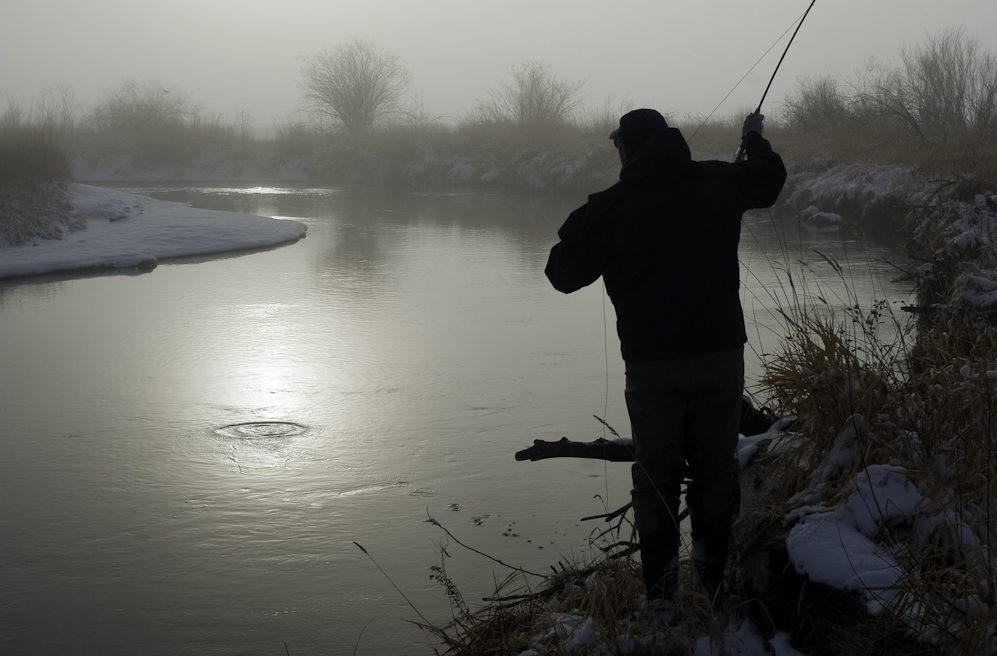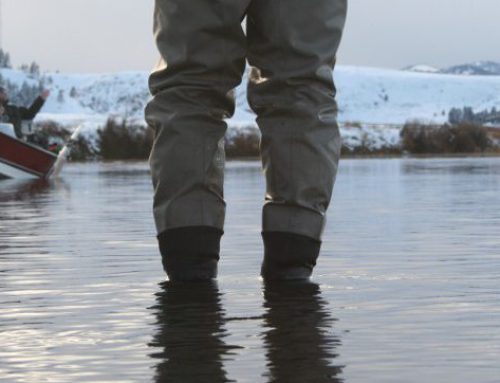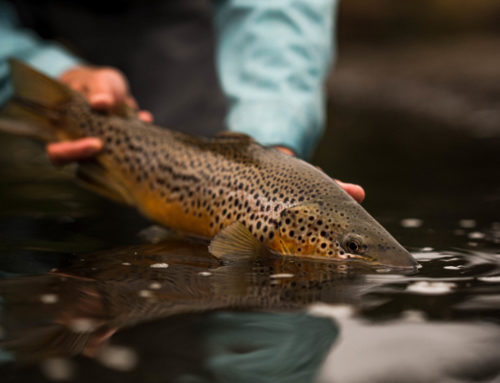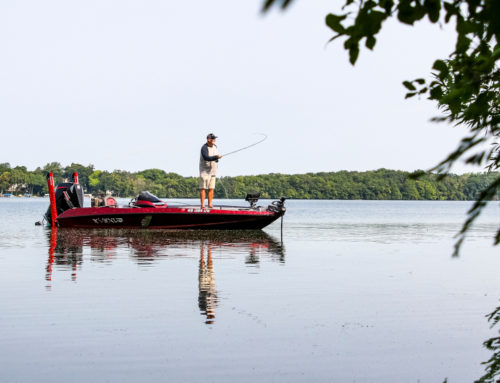onWater’s own Patrick Straub discusses some tips for safety for fly fishing in winter. Use these helpful tips to ensure you enjoy future fly fishing trips.
During a recent winter fly fishing outing on the Gallatin River, my angling companions were a few water ouzels, several bighorn sheep, and a moose that casually crossed upstream of my location. The quietness of the river comforted me. But at all times I was aware of my safety.
In today’s world of updates, hashtags, likes, tiks-and-toks, angling in winter is an opportunity to cherish the act of fishing. However, with this solitude comes a responsibility to stay safe—one slip and your solo-angling experience could quickly turn into a battle to survive.
Here’s some helpful advice for winter fly fishing safety.
Ice jams are dangerous realities
Although rare, ice jams can be very dangerous. When large ice jams break, thousands of pounds of ice and debris rush downstream faster than you can run in waders and boots. When daytime highs remain in the low 20s F and colder for more than a week, conditions are ideal for ice jams to form. As temps warm and hover above the high 30s and warmer, ice jams can burst. Do not fish downstream of any known ice jams. If conditions exist for ice jams to break, inquire locally or spend extra time to drive upstream to inspect.
Wear proper clothing, layered and utilized
Winter weather can change quickly for the better or worse, so be prepared with quality waterproof outerwear. A stocking hat and gloves are essential. Layer your clothing appropriately and plan accordingly—often times a hike through deep snow is essential to get to a favorite run. Sweat caused from exertion may dampen layers close to your skin, causing you to become chilled. If I have a hike ahead of me, I pack an extra vest or fleece layer to wear once I reach the river. If my hike is short, I unzip my outerwear or even tie it around waist, and take off my stocking cap. Knowing your local waters helps to pack for the day.
Have quality waders with zippers or added features
Winter is not the time to fish in your hand-me-down, third generation waders. Invest in durable waders that have features you will use, such as a zipper for ease of relieving yourself—or waders with built-in hand-warmer pockets, or pockets to stash gear. But above all, spend some extra money on durability to ensure your winter fly fishing safety is covered.
Trust cleated or aluminum-barred boots
Many trout rivers are slippery enough in summer, but a fall in an icy river can ruin your day immediately, or worse, end your life if you are far from help. Ensure your winter fly fishing safety is taken into account by adding cleats to your boots or purchasing boots with a built-in aluminum bar, such as the Patagonia Foot Tractor wading boot.
Wade safely and leave the risk taking for the slopes
Never wade deeper than your thighs and accept that no fish is worth your life. Be aware of bottom-dwelling anchor ice—ice that builds from the river bottom up—as even the best designed wading boots struggle on anchor ice. A wading staff is important if you plan to cross a stream or feel less than able on slippery rocks.
Shelf ice: stay off and stay away
Shelf ice builds from the stream bank out to the middle of the river. Like any frozen lake or pond, venturing onto it carries risk. Shelf ice is different because should you break it, there is most likely flowing water beneath it. Broken ice and moving water are not good combinations for wading anglers. Stay off shelf ice and stay safe.
Plan for plenty of travel time and park appropriately
Driving in winter can be challenging enough. Give yourself plenty of time to get to the river to avoid being rushed in poor conditions. As snowplows often pile snow in roadside pullouts, several of the normal access points become inaccessible due to the piling of snow. Park in an area where you won’t have to flag for help because you got stuck, or where getting in and out of your vehicle affects other vehicles.
Winter fishing is an experience to enjoy—solitude, witnessing nature in a quiet season, and plenty of fresh air during a long winter. But be sure to fish safely so you can get in your hashtags and updates so all can see the wonderful time you had fishing by yourself.
Click here to learn more about onWater, and the anglers that make up our great team.





